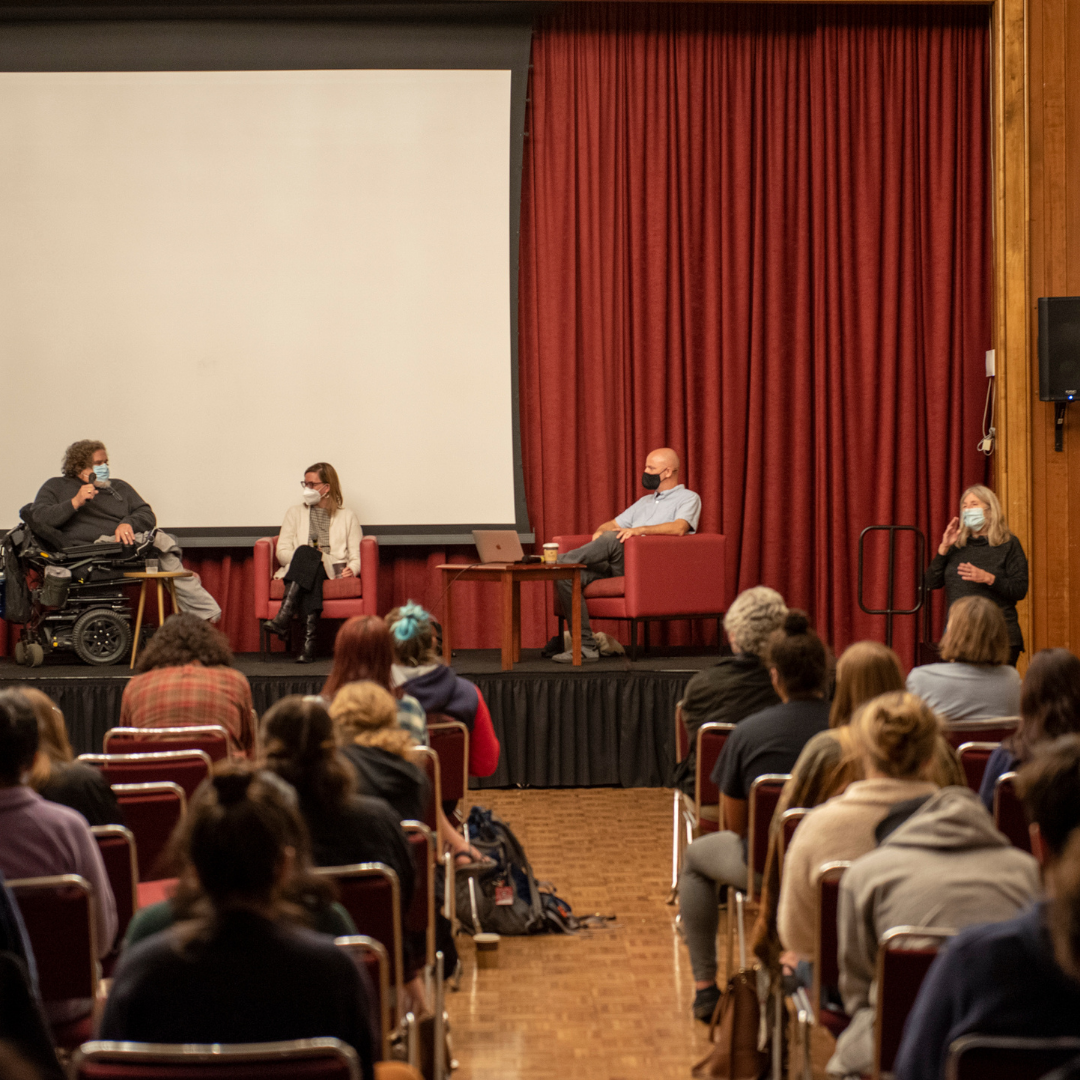
“Crip Camp”: Centering on Joy for a Better World
Saint Mary’s hosted a free screening of the award-winning documentary Crip Camp: A Disability Revolution, last November. The movie shows how a groundbreaking summer camp galvanized a group of teens with disabilities to help build a movement, forging a new path toward greater equality. Students were also invited to a conversation with the directors afterward.
Crip Camp unveils how joy is at the center of a newer, better world. Despite this, the documentary film is not about a utopian fantasy or a possible future; it is about circumstances past, starting with Camp Jened and the subsequent developments it sparked in the disability community. Camp Jened, a summer camp for disabled children run by disabled camp counselors had a significant impact on its participants as a space away from judgement and infantilization. This impact cannot be understated as the film follows the story of some of the attendees as well as the counselors, culminating in the figure of Judy Heumann, a prominent disability rights activist who led the famous 504 sit-in at the U.S. Department of Health, Education, and Welfare’s San Francisco Building. The sit-in was aided by the Black Panther party and resulted in anti-discrimantion and education laws being signed in for disabled individuals. Crip Camp was created by James Lebrecht and Nicole Newnham, and is one of the first productions to come out of Higher Ground Productions (Michelle and Barack Obama’s production house). On top of the notable associations, it has also been nominated for a number of awards including the Oscars and the Peabodys.
The film was well received by the Saint Mary’s community, as we saw both exceptional attendance and involved engagement from everyone. Tyler Dunne ’22, co-president of the Film Club on campus, talked about the rise of documentary filmmaking as well as the impact that Crip Camp had had on him. “It is a really powerful medium for getting stories out to a wide audience,” Dunne said, adding that he was “really happy that [documentary film] was the medium chosen for this forum because it’s incredible to witness so much hope, especially in the aftermath of the past year.” This sentiment was echoed by others attending the event, witnessing the effectiveness of community building and action in a digestible and well-made format. Dunne also talked about the immense pressure of handling other people’s stories and doing justice to them, something that the filmmakers also discussed in depth . Nicole Newnham chose to speak on the metric of truth throughout the filmmaking process, where accuracy and truthfulness were two unnegotiable parameters in the process for her.
Assistant Professor of Communications Jason Jakaitis organized the event and described it as “a dream come true” for him to have such incredible filmmakers on campus. Coming out of the pandemic, Jakaitis also talked about how he wanted to organize a communal event. “I am thrilled to see people from so many different groups meeting and coming together,” Jakaitis said. “I am really trying to build on the intersectional communities here at the college and build similar spaces for people to come together.” The filmmakers echoed Jakaitis’ sentiments in their appreciation for an enraptured audience. Newnham described the event as “warm and welcoming,” stating that she was pleased to see “so many genuinely engaged people.” Lebrecht talked about the importance of “being in a community, especially in a time that is so tough for everyone.”
At the end, an audience member asked Lebrecht what role joy had in social activism. “What brings joy and what makes people think they don’t have joy?” Lebrecht responded. “A lot of social movements are about darkness and corruption, especially recently in the media about the 1960s and ’70s. But joy is at the center of a better world.”